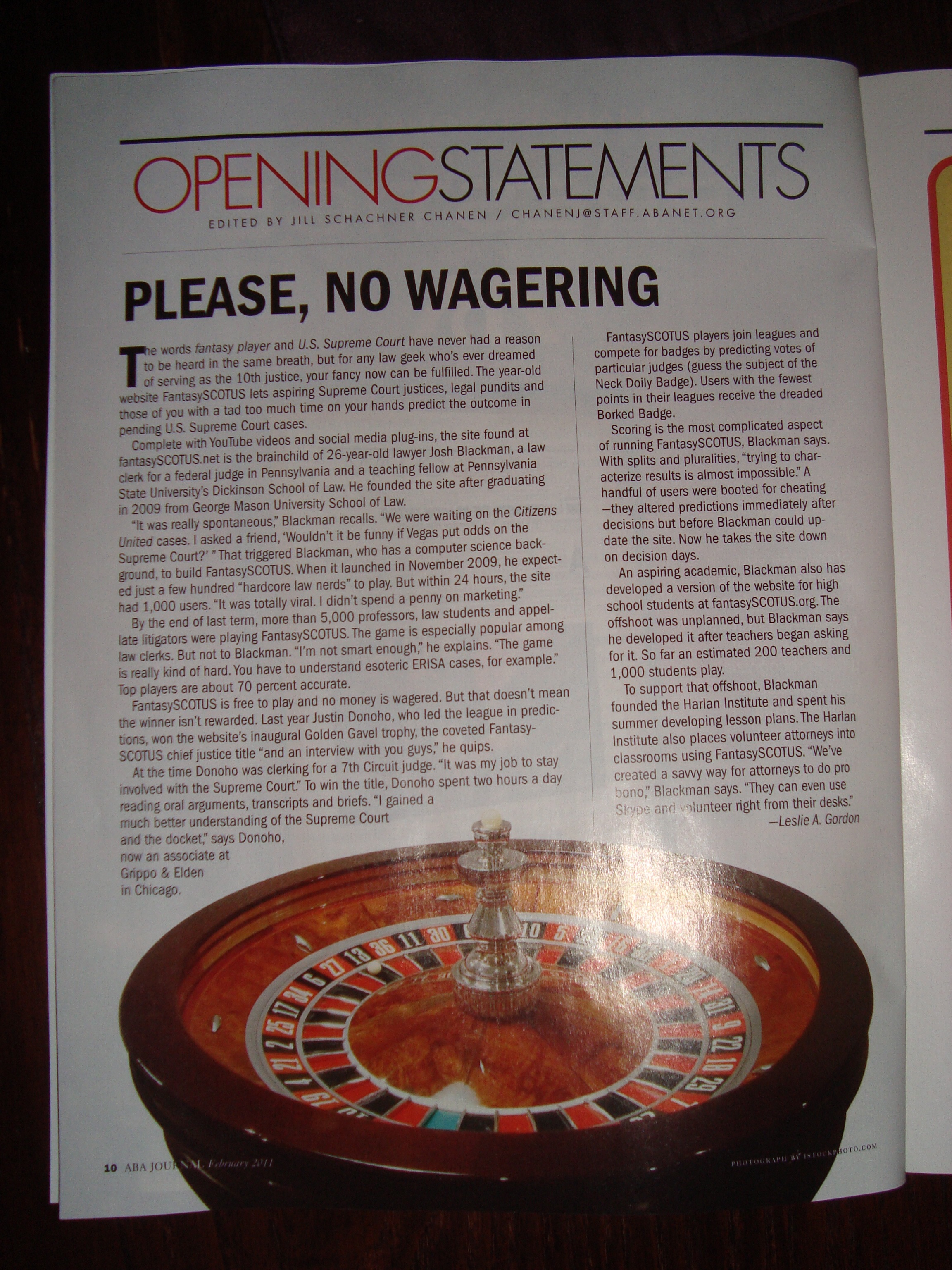Fantasy Recap: Snyder v. Phelps in plain English
March 3, 2011
Today the Supreme Court decided Snyder v. Phelps. Eight Members of the Supreme Court held that the First Amendment protects the right of protestors to display signs containing offensive messages about gay people near funerals of fallen military service members.
Chief Justice Roberts wrote the majority opinion. The signs discussed the wars in Iraq and Afghanistan and our military, which are public, rather than private matters. When speech deals with a matter of public concern, it deserves stronger First Amendment protection. Additionally, the protestors stayed approximately 1,000 feet away from the funeral service, and Mr. Snyder, the father of the slain Marine, could only see the tops of the protestors’ signs. Therefore, the speech was protected by the First Amendment of the United States Constitution.
Justice Alito disagreed with the Court, and wrote a dissenting opinion. Justice Alito wrote that the death of Matthew Snyder was not a public issue, but a private issue. The First Amendment does not protect such outrageous conduct dealing with private matters. The protests caused the Snyder family a lot of pain and suffering. Justice Alito would have permitted the Snyder family to sue the protestors.

 Abbie (on the left) and Olivia (on the right) Foster, creators of TeenJury.com. (Photograph courtesy of Masslive.com)
Abbie (on the left) and Olivia (on the right) Foster, creators of TeenJury.com. (Photograph courtesy of Masslive.com)
 What is HARLANconnect?
What is HARLANconnect? First, interested classes request a mentor.
Second, the Harlan Institute contacts one of the attorneys in our vast network, and attempts to locate a suitable mentor for the classroom. This mentor will be an attorney, law professor, or law student with a passion for the Constitution, and an interest in sharing his or her knowledge with tomorrow’s leaders and decision-makers.
Third, after a mentor is paired with a class, the Harlan Institute will schedule an initial Skype video call. During this 45-minute call, the mentor will introduce the students to one of the cases pending before the Supreme Court this term, and highlight the constitutional issues in the case.
Following the initial Skype Call, if both the class and the mentor concur, the Harlan Institute will schedule additional Skype calls and other forms of electronic exchange.
First, interested classes request a mentor.
Second, the Harlan Institute contacts one of the attorneys in our vast network, and attempts to locate a suitable mentor for the classroom. This mentor will be an attorney, law professor, or law student with a passion for the Constitution, and an interest in sharing his or her knowledge with tomorrow’s leaders and decision-makers.
Third, after a mentor is paired with a class, the Harlan Institute will schedule an initial Skype video call. During this 45-minute call, the mentor will introduce the students to one of the cases pending before the Supreme Court this term, and highlight the constitutional issues in the case.
Following the initial Skype Call, if both the class and the mentor concur, the Harlan Institute will schedule additional Skype calls and other forms of electronic exchange.
